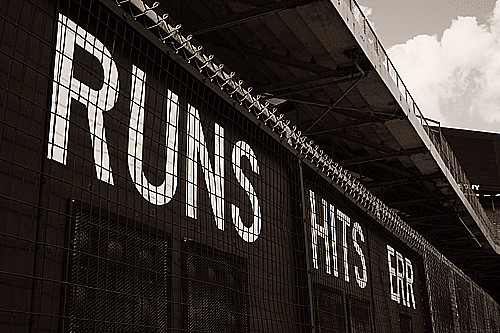Christine Brennan
USA Today
The game Sunday afternoon at Wrigley Field was meaningless, just the Chicago Cubs and Arizona Diamondbacks playing out the season. But the bench coaches for each team found themselves strangely engaged in the one division race that still mattered, drawn from their separate dugouts to watching the numbers change on the scoreboard, knowing just how much what they were watching unfold meant to their beloved former home of Detroit.
"I'm watching the scoreboard, watching the scores from the Tigers' and Twins' games, then watching Detroit go ahead, and saying, 'Gosh, I wish that was me,' " said Arizona's Kirk Gibson, who grew up in Michigan and helped lead the Tigers to the 1984 World Series title. "It's stress, but it's what we love, to still be playing, to still have a chance."
"People who are in this business know how tough it is to win a title," said Chicago's Alan Trammell, who played shortstop for the Tigers from 1977 to 1996, then later became their manager. "Obviously it would be huge if the Tigers can win (Tuesday), but those darn Twins, playing in the Metrodome, they find a way to get it done."
Gibson and Trammell's rooting interest in the Tigers is entirely natural; they were in Detroit last week to celebrate the 25th anniversary of the franchise's last World Series victory.
But they also are cheering on a metaphor. Nothing comes easy for Detroit these days. The Tigers had a seven-game lead with 26 games remaining. Kind of like the Big Three automakers all those years ago. Then the Tigers were three up with four to go last week but fell apart before winning their final game to salvage a tie for the division lead.
If the Tigers don't find a way to beat Minnesota today, won't their collapse be the mirror image of their poor city's?
"These are great sports fans and I feel for them," Trammell said in a phone interview Monday. "On Saturday afternoons in September when I was playing, we used to have 40,000 at Tiger Stadium, there would be 100,000 over at Michigan Stadium and then another 75,000 up the road at Michigan State. I don't know how many towns can say that. As far as sports towns go, there's none better."
Gibson grew up in Pontiac, a Detroit suburb, and went to Michigan State. He not only remembers the 1967 riots and the 1968 Tigers' World Series victory as a boy of 10 and 11, he links the two, as any good Tigers fan does.
"That was very significant in the healing process for Detroit," Gibson said over the phone from Arizona. "Then in the early '80s, things weren't very good in Detroit and I remember the feeling as I was playing that we could help people get their minds off their troubles, that we could rally people, that we could help them be optimistic and help them believe again.
"Detroit is such a tough town. There have been a lot of jokes and comments made about Detroit for years and years now, and our sports teams have been that mechanism to keep us grinding, to keep us pushing forward, to try to overcome those odds."
There is no doubt sports really matter in Michigan. Although Detroit truly is a baseball town first and foremost, it's not wrong to also call it "Hockeytown," as many do. And we cannot ignore the fact that the new Detroit mayor is former Pistons point guard Dave Bing.
Problem is, for every step forward Detroit takes on the field of play, it seems a step backward comes along all too quickly. The Michigan State men's basketball team made the NCAA title game at Ford Field in April, then lost miserably to North Carolina. The Red Wings lost Game 7 of the Stanley Cup Finals two months later. The Lions finally won a game last month, but are back to losing again.
"I think everybody agrees Michigan has been hit harder than any other state in the country economically," Trammell said. "Sports doesn't fix things, we all know that, but it can get your mind off your problems for a period of time, so that's a great thing."
Trammell, a native Californian, spent enough time in Detroit to learn that even in the bleakest of Midwestern times, unfettered optimism often flourishes. He has heard, for instance, that there's always tomorrow.
Even if it's today.
Subscribe to:
Post Comments (Atom)




0 comments:
Post a Comment